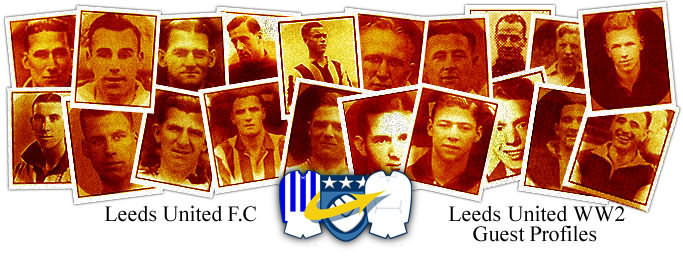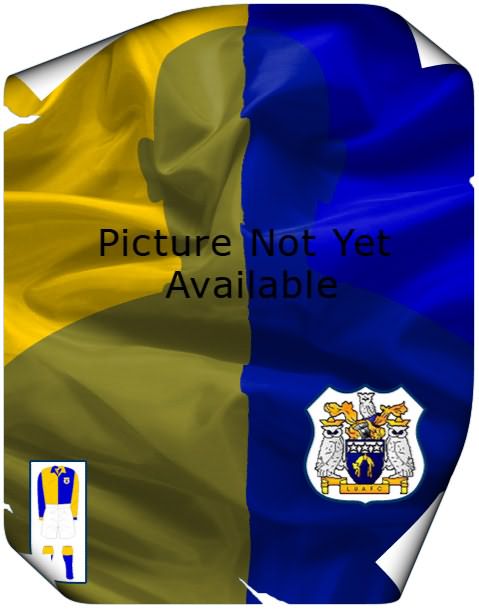

Paton: Thomas Gracie (Tommy)
WW2 Guest: 1943-1944
(Leeds United War-time Guest Player Details)
Centre Half
Born: Saltcoats, Ayrshire: 22-12-1918
Debut: v Sunderland (h): 04-09-1943
Height & Weight: Unknown
Paton started his career with Ardeer Recreation as an amateur in July 1936 as an Inside
Forward and tuened professional with First Division Wolverhampton Wanderers in June 1937.
He did not make a senior appearance for them and moved to Second Division Swansea Town in
October 1938 where he made six League appearances before moving to Third Division South team,
Bournemouth and Boscombe Athletic, in February 1939. He scored twice in seventeen game before
the end of the 1938-39 season. He had scored once in the three games of the 1939-40 season,
before the Second World War saw the Football League fixtures suspended. On 2nd September 1939,
the day before war was declared Paton had scored one of ten goals that Bournemouth had put
into the Northampton Town net and as a result of the declaration of war the result of this,
and the two previous games became void. To this day Bournemouth have never scored more than
seven in a Football League match, and so the record score stands despite the exertions of the
players on that second day of September 1939. It was in the War Years that he guested for
Leeds United making just one appearance for them in the second game of the 1943-44 Football
League Northern Section (First Championship). It was at Centre Half in a 1-5 defeat by
Sunderland at Elland Road on 4th September 1943. He also guested for other clubs as
Bournemouth did not compete in the seasons of 1942-43, 1943-44 and 1944-45. He saw service in
the Second World War and first served in the Army with the Hampshire Regiment, but then, as
an RAF officer in Bomber Command, he was a prisoner of war for three years after being shot
down near Heidelberg. He started the War-time League 1939-40 season with Bournemouth and was
their leading goalscorer with twenty-six goals in thirty-one appearances and also scored in
the game against Norwich City, which was played after the season had ended and also scored
once in five appearances in the War Cup. He only played one game, without scoring, for
Bournemouth in the 1940-41 season but guested for Tottenham Hotspur in four games without
finding the net. In the 1942-43 season he played three games for Queens Park Rangers and in
the following season he had one game with Manchester City but remained goalless in for both
clubs. He was back with Bournemouth for the final season, 1945-46, played under war-time
conditions and he scored twelve goals in thirty-nine games and also netted once in two War
Cup games. He returned to Bournemouth after the War and scored another six goals in
twenty-nine League appearances as well as two goals in four F.A. Cup ties in the two seasons,
before he moved to Watford in January 1948 for £1,000. He made his Vicarage Road debut in a
1-1 home draw with Northampton Town, in a Division Three South game on 31st January 1948.
Signed as an inside forward, he stayed with the Hornets for almost five seasons, playing
almost exclusively at Right Half, and scoring one goal in one hundred and forty-one League
games and also playing eight F.A. Cup ties and was soon made club captain. The goal he
scored came in his sixth appearance in a 3-1 win at Portman Road over Ipswich Town but he
never scored again in one hundred and forty-three first-team appearances, which terminated
at Portman Road on 19th April 1952 in a 0-3 defeat. He left Vicarage Road in August 1952 to
play out his career with Non-League Folkestone, who he stayed with until the late 1950s. He
continued to live in Folkstone even though he became a scout for Sheffield Wednesday in
September 1959 and he died there on 14th December 1991, eight days before his seventy-third
birthday. His younger brother Andy captained Motherwell in the 1950/51 Scottish FA Cup final
and was twice capped by Scotland.